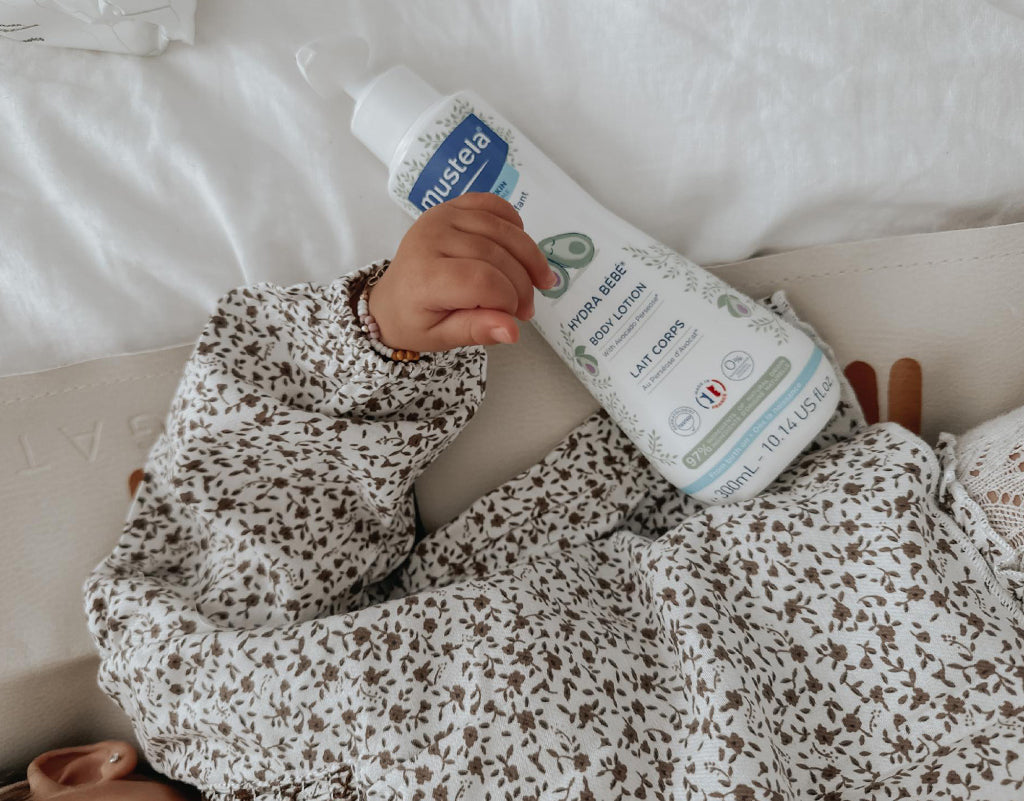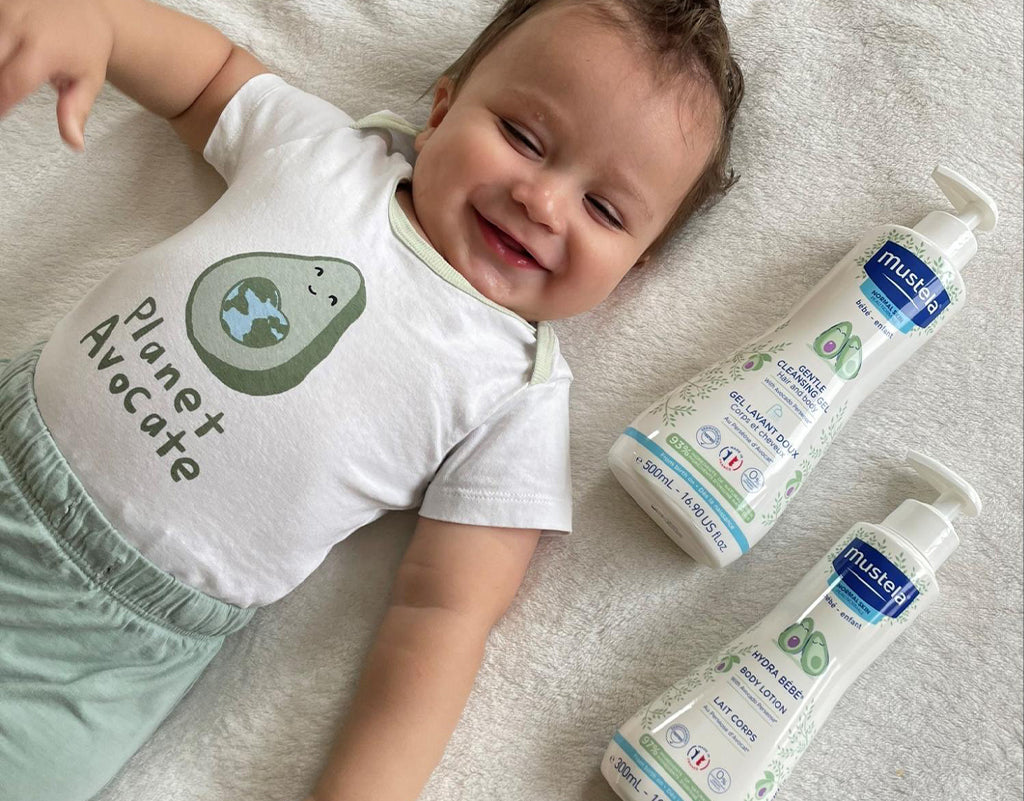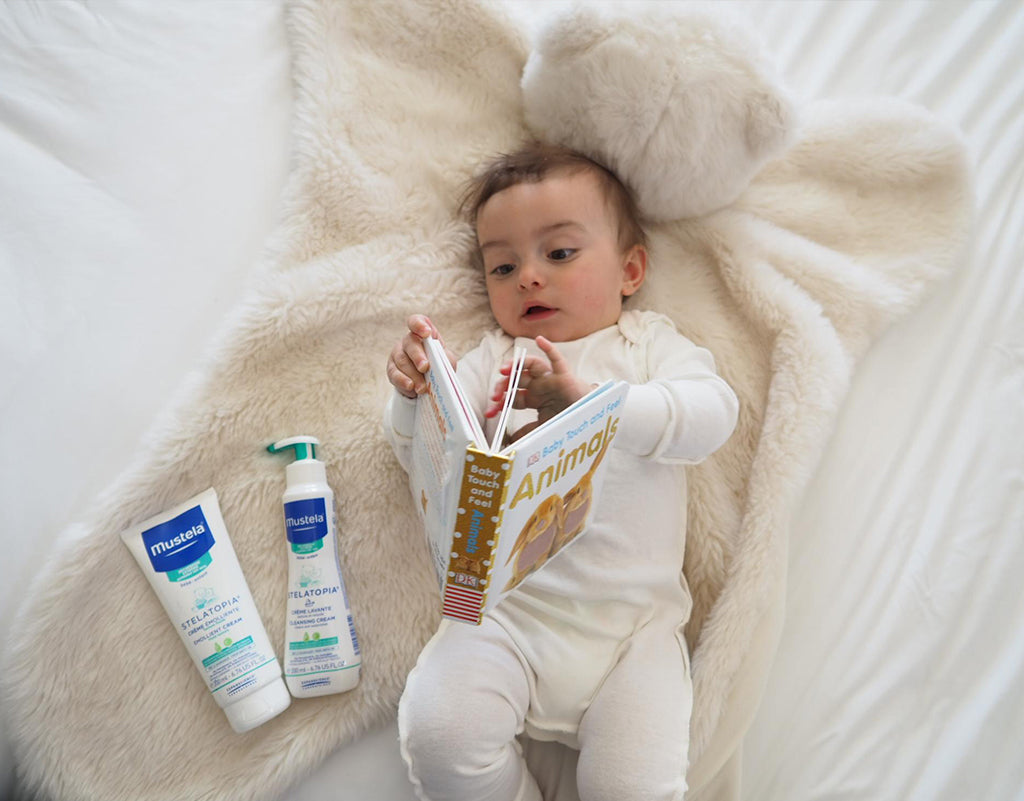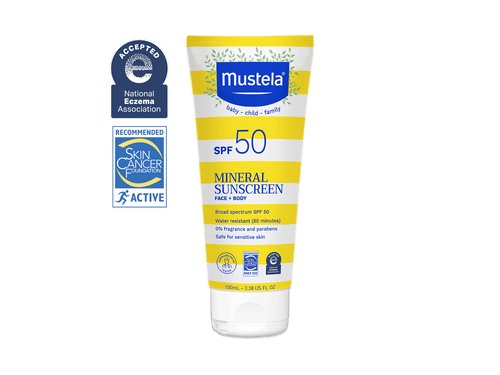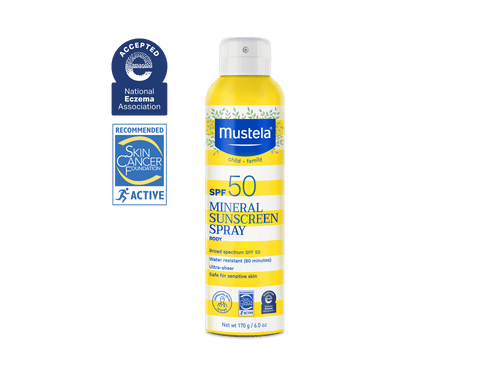You want to get that glow, but sometimes your skin doesn’t cooperate. It could be because your skin barrier is damaged. Because your skin is your biggest organ, it’s essential for this first layer of protection to be in good shape.
In this article, we’ll walk you through what your skin barrier is and why it’s so important. We’ll also give you tips on how to protect it and, if it’s damaged, how to repair it. Your skin will thank you!
What Is Your Skin Barrier?
Taking care of your skin barrier is good advice for everyone in the family: mom, dad, and baby included. But before we talk about how to protect and repair your skin barrier, it’s essential to know what it is and why it’s so important.

Its Purpose And Why It’s Important
Your skin has three layers: the epidermis or outer layer, the dermis or middle layer, and the subcutaneous fatty layer. The outermost layer of the epidermis is called the stratum corneum, a.k.a. the skin barrier.
Your skin barrier serves as your body’s first line of defense, staving off “bad guys” like environmental toxins and pathogens. It also keeps water inside your body so that it can function properly. Suffice it to say, the stronger your skin barrier, the better.
How It Works
Your skin barrier is made up of skin cells called corneocytes that are held together with lipids, sort of like a brick wall. When it’s healthy, skin cells are neatly lined up and bound with the lipids that serve as your skin’s “mortar,” holding it all together.
The skin’s “mortar” is made from:
- Cholesterol
- Ceramides
- Fatty acids
When this wall is well-built, nothing can penetrate it. The tightly bound cells and lipids are doing their job of maintaining homeostasis, protecting from dehydration, and shutting out allergens, chemicals, and other irritants.
However, if the barrier is damaged, the cells — or in our analogy, bricks — are more disorganized or missing, leaving way for gaps where the bad stuff can get in and the good stuff can get out.
What Can Hurt It
Many things can hurt your skin barrier. Some common offenders include:
- Pollutants, allergens, or other irritants
- Environmental conditions like hot, humid, dry, or cold weather
- Sun exposure
- Harsh soaps and detergents
- Hot baths or showers
- Over-exfoliation
- Medicines like steroids
- Stress
- Cuts or injuries
- Your dietary choices
- Poor hygiene
- Lack of sleep
- Aging
- Over-processed foods, alcohol, and caffeine
- Conditions like eczema, rosacea, and psoriasis
However, not everyone will react the same way to these factors. Some people may have a more resilient skin barrier that can better withstand these external stressors, while others may have a weaker “brick wall” that’s easily damaged.
In addition to external factors, there are also internal factors that can affect your skin barriers. These include genetics, hormonal changes, and certain health conditions like autoimmune disorders or nutritional deficiencies.
Signs Of A Damaged Skin Barrier
If your skin barrier is damaged, your skin is going to show it. A damaged skin barrier can present as red, flaky, dry, scaly, or any combination of these. You can also have rough or discolored patches of skin, heightened sensitivity, or inflammation.
In addition, skin infections or acne can be a sign of a damaged skin barrier. Signs of aging can be more pronounced, and your skin may appear dull, with more apparent fine lines or wrinkles, too.
How A Child’s Skin Barrier Differs
While the same basic principles of skin barrier function apply to children and adults, let’s look at some key differences between the two age groups.
Vernix Caseosa
During the second trimester of pregnancy, your baby grows a thick layer of vernix caseosa. Vernix, as it’s commonly called, is a white, cheesy-like covering that coats their developing skin. It protects your baby from prolonged exposure to amniotic fluid.
While some babies lose their vernix before birth, many are born with some still in place. It'll act as a natural moisturizer until it’s washed off during your little one’s first bath.
Once this protective layer is gone, your newborn’s skin will dry out easily. To help keep them comfortable, you’ll want to regularly apply a baby-safe moisturizing product, like our Nourishing Lotion with Cold Cream or Hydra Bebe Body Lotion.
Thinner Texture
Babies are born with their skin barrier in place. However, it’s still developing since their stratum corneum is thinner than adults.
This means babies have delicate, sensitive skin. Many products that work well on adults will be too harsh for babies. It’s essential to use gentle, non-irritating products specifically formulated for baby skin.
Faster Water Loss
Studies have found that babies have higher water loss rates through their skin than adults. It’s easier for babies to lose moisture and develop dehydrated skin, especially in dry or cold weather.
You must apply moisturizer regularly to keep your child’s skin hydrated and protected. Look for products with natural ingredients like:
- Jojoba Oil
- Sunflower Oil
- Avocado Perseose
- Vitamins E and F
Our Hydra Bebe Body Lotion is a great choice. It has a non-greasy formula and quickly penetrates your child’s skin to provide moisture.
More Prone To Irritation
Children’s skin is more sensitive and reactive than adults'. Their immune systems are still developing, so their skin is more prone to irritation from allergies, environmental factors, and even certain ingredients in skincare products.
To reduce the risk of irritation, choose hypoallergenic products — and always patch-test new products before rubbing them all over your little one’s body.
Shows Symptoms In Different Areas
For babies, skin barrier problems can often be seen in the diaper area, thanks to overhydration and irritants like urine and poop that can affect the skin’s pH. On top of that, little ones also have thinner skin than adults until about two years old, making them prone to diaper rashes.
It’s particularly important to change your baby often and use specifically formulated diapers and wipes that minimize irritating ingredients for delicate baby skin. Our ultra-mild Certified Organic Water Wipes with Cotton and Aloe are particularly soothing.
Baby skin problems can also crop up on their scalp, leaving them with a recurring case of cradle cap. If your baby struggles with this condition, try our Cradle Cap Cream. It keeps their skin moisturized to help prevent the scales and flakes from returning.
How To Protect Your Skin Barrier
The good news is that if you’re worried about your (or your child’s) skin barrier, you can do many things to strengthen and protect it.
Focus On Hydration
The best thing to do to protect your and your little one’s skin barrier is to hydrate often.
This means you’ll want to have a good daily moisturizer. Ingredients to look out for include hyaluronic acid, which locks water into the skin, and barrier-building ingredients, like ceramides, niacinamide, and fatty acids.
Applying your moisturizer on damp skin makes it most effective, so moisturize right after washing your face or taking a shower.
Cut Down On Products
It’s fun to get the latest product with the “it” ingredient, but there’s such a thing as too much. A shelf-full of active ingredients can be downright overwhelming to your skin.
Instead, the new trend, especially when you are talking about skin barrier health, is skinimalism. That’s right, less is more. Stick to a pared-down routine of cleanser, moisturizer, and SPF.
For your baby, stick to gentle products designed for their skin type. For example, if they have eczema-prone or very sensitive skin, choose fragrance-free, dermatologist-tested skincare products.
Stop Smoking
In addition to hydrating your skin, you want to avoid things that will dry it out, too. While this point is more for you than your little one, smoking wreaks havoc on your skin. So if you want to get that glow, it’s best to stop.
Tobacco smoke is toxic to cells and causes premature aging, dry skin, and decreased collagen and elastin. If you need help quitting, talk to your doctor.
Knowing that your little one won’t be around harmful secondhand smoke may motivate you to kick the habit once and for all.
Keep Your Hands Off
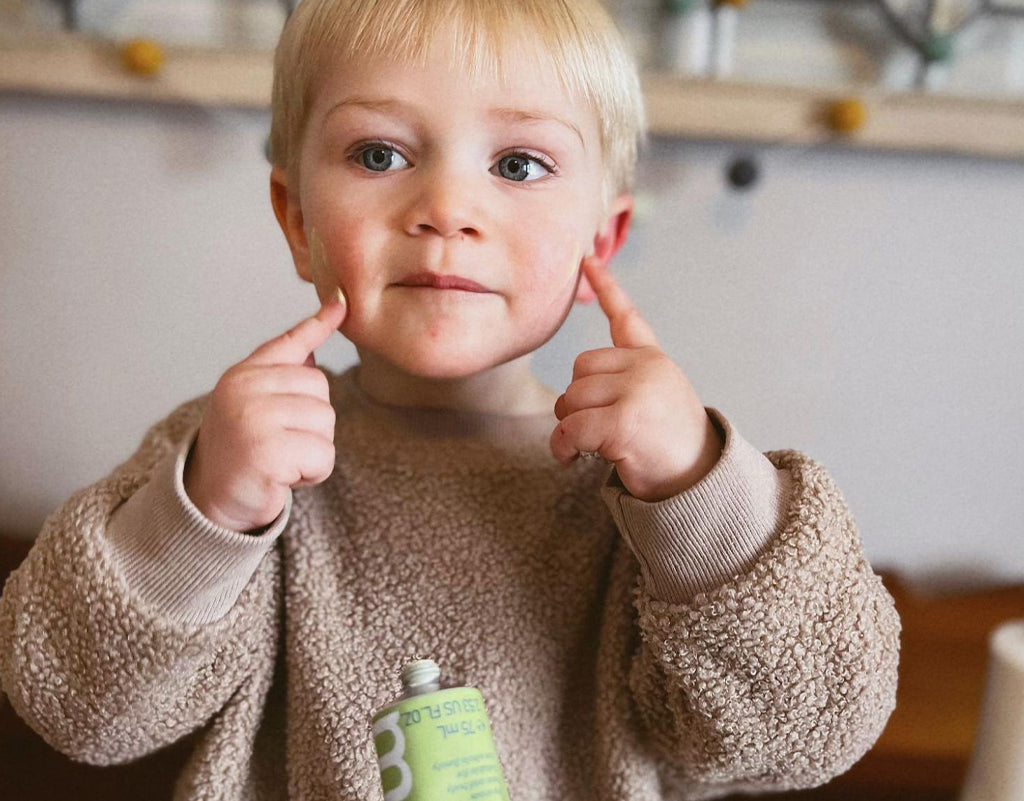
When your skin feels itchy and irritated, it’s tempting to scratch it. You may even feel compelled to keep scratching, even when it no longer feels good. But as tempting as it may be, scratching can further damage your skin.
If you’re struggling to keep your hands off of your skin, here are a few tricks that can help:
- Apply a cold compress for 10-15 minutes
- Wear mittens, especially at night
- Keep your nails short and smooth
- Tap your fingers lightly around the itchy spots
- Distract yourself with another activity, like reading or listening to music
- Remind yourself that scratching can break the skin and lead to an infection
Minimize Stress
Stress has negative effects on all of your body’s systems as well. When you’re stressed, it’s easier for things to break down. Manage your stress the best you can through activities such as yoga and meditation. And also be sure you’re getting enough sleep.
Remember that stress isn’t limited to adults. Babies, children, and teens can also feel stressed. When they do, it can manifest itself as behavior changes, gastrointestinal issues, and even skin problems.
As a parent or caregiver, try creating a calm and nurturing environment for your child to minimize stress levels. You can encourage them to:
- Limit screen time
- Play outside
- Participate in calming activities like coloring or readings
- Talk to you about their feelings
- Go to bed at a reasonable time
By teaching your child healthy coping mechanisms, you’ll give them the emotional literacy they need to manage stress throughout their lifetime.
Eat Healthy
It’s not only what you’re putting onto your body, but also what you’re putting into it. Focus on whole foods and healthy fats, and skip the processed foods and sugary treats. Minimize your alcohol and caffeine and dial up the water!
Some foods that make skin sing include green leafy vegetables, fatty fish like salmon and mackerel, nuts, beans, berries, and carrots, to name a few.
If you’re breastfeeding, your diet can impact your child’s skin. Babies with eczema-prone skin can develop flare-ups from allergens in their mother’s diet. If your child’s skin worsens, talk to your doctor about eliminating common allergens, like dairy or gluten, to see if it helps.
When your baby is old enough to start eating solids, focus on nutritious foods appropriate for their age. Tasty fruit and vegetable purees and meat provide the nutrients their developing skin needs to stay strong.
Remember The Sunscreen
UV rays are your skin barrier’s enemy. You’ll want to use a broad-spectrum sunscreen every day and avoid peak hours in the sun with or without your little one.
Wearing long sleeves, pants, and a wide-brimmed hat can help protect your skin barrier as well, not to mention help avoid dark spots, wrinkles, and skin cancer. So get into the habit of protecting your baby’s skin from a young age to give them a leg-up in the skin department.
How To Repair Your Skin Barrier
Your skin barrier is under near-constant attack from different irritants. No matter how much you try to protect it, you’ll likely experience some damage in your lifetime.
Keep reading to learn how to repair and strengthen your skin barrier.
Stop Whatever Damaged Your Skin Barrier
This is pretty obvious, but the first thing you want to do is stop damaging your skin barrier in the first place. If you were using a particular soap or were over-zealous in your exfoliating habits in the past, switch up your routine.
If you aren’t sure what’s causing the damage, you’ll need to put on your detective cap. Start keeping track of your skincare habits and the products you use, and try to identify any patterns that could be the culprit. Once you do, make the necessary changes to avoid further harm.

Be Gentle
The name of the game to restore and repair your skin barrier is to be as gentle as possible. This means gentle products and a light touch. Don’t scrub with a washcloth or pull or tug on your skin.
You also might consider finding a cleanser close to the natural pH of your skin. Steer clear of retinoids, AHAs, or other irritating ingredients in all of the products you use, including your sunscreen.
Simplifying your routine is a good idea, but once you do, don’t change it up too much. It’s going to take a few weeks to get your skin barrier back on track.
Treat Underlying Skin Conditions
You may be more susceptible to a damaged skin barrier if you have a skin condition such as eczema or psoriasis. These conditions cause inflammation and irritation, weakening the skin’s protective layer.
If you have a chronic skin condition, work with your doctor to develop a treatment regimen. Then, follow it consistently. In addition, you’ll want to choose skincare products designed to work with your condition to avoid further damage.
For example, the Mustela line of Stelatopia products uses plant-based ingredients to strengthen your child’s skin barrier naturally. These fragrance-free formulas have been clinically tested to ensure they are effective yet gentle. They’re even safe for newborns.
Here are some of our most popular baby eczema products for you to try:
Choose Clothes Wisely
Your clothes rub on your skin all day, so pay attention to how different materials make you feel. Then, opt for clothes that are soft and breathable.
Rough or scratch fabrics can further damage your skin barrier and make you uncomfortable. Synthetic materials, such as polyester and nylon, can also cause problems. They trap sweat and grime against your skin. Instead, choose natural, breathable fibers like cotton or linen.
The season and weather forecast will also impact your clothing choices. The elements can be brutal.
Protect your skin barrier by wearing layers in the winter. Keep a scarf wrapped lightly around your face to keep the wind off it. In summer, choose loose-fitting clothes that won’t contribute to a heat rash.
Run A Humidifier
Dry air leads to dry skin. To keep your family’s skin hydrated, check the indoor humidity levels. If it’s below 40%, consider running a humidifier — at least in the bedrooms.
This will add moisture to the air and help prevent dryness.
Keep Up Good Habits
You’re going to want to do all of those things that we talked about to protect your skin barrier. That means no smoking, wearing sunscreen, and eating good, healthy food. Your skin barrier is working to protect both the inside and outside of your body, and so will your good habits!
Hydrate, Hydrate, Hydrate
The biggest thing when you're trying to repair your skin barrier is to focus on hydration. As we said earlier, you want a moisturizer with ingredients that will lock water into your skin as well as build your skin barrier.
Again, hyaluronic acid, ceramides, niacinamide, and fatty acids, are some good ingredients to look out for when choosing a moisturizer. Mustela Nourishing Cream with Cold Cream and Stelatopia+ Lipid-Replenishing Cream are just a couple of our products that might fit the bill.
Turn The Water Temperature Down
Even though soaking in a hot bath feels terrific, the water can damage your skin’s natural barrier when it’s too warm. The heat can strip your skin of natural oils, leaving it dry and vulnerable.
Opt for lukewarm water when showering and when bathing your little one. And keep your eye on the clock. Try to spend no more than 10 minutes in the water.
When To See A Doctor
Often, you’ll be able to repair and protect your or your child’s skin barrier with the strategies mentioned above. However, that’s not always the case.
If you aren’t seeing the expected results within a week or two, it’s time to consult your doctor. They can help determine if there are underlying issues causing the skin barrier dysfunction and recommend an appropriate course of action.
Additionally, seek medical care if you notice any of the following symptoms:
- Persistent redness, irritation, or sensitivity
- Severe dryness or flaking
- Oozing or crusting
- Severe itching or burning
- Signs of an infection
- Signs of an allergic reaction
Other Skin Care Tips
Once you’ve restored your skin barrier, here are some additional tips to keep your skin healthy and glowing.
- Identify your skin type and use products formulated for it
- Apply a face mask once or twice a week to nourish your skin (this one's for you, not your baby!)
- Get enough sleep every night so your skin can repair itself and regenerate
- Use plant-based ingredients instead of harsh chemicals
- Wash your bedding regularly
Remember that taking care of your skin is an ongoing process. You won’t notice results overnight, but positive changes will become apparent if you keep consistently taking baby steps.
Happy, Healthy Skin

When your skin isn’t looking its best, it may be a sign that you have a damaged skin barrier. But as we said, there are things you can do to protect and repair that essential layer. And the good news is, much of our advice helps your body in all sorts of ways.
If you want your skin barrier to be strong, good lifestyle habits are key. Eat healthily, don’t smoke, and try to minimize stress. Then, pare down your skincare routine to a good cleanser, moisturizer, and SPF, and focus on the right ingredients.
To strengthen your or your little one’s skin barrier, try Mustela favorites, like the Stelatopia Lipid-Replenishing Cream, Nourishing Cream with Cold Cream, Nourishing Stick with Cold Cream, and Nourishing Lotion with Cold Cream. Top it all off with SPF 50 Mineral Sunscreen Lotion.
Our maternity, baby and child, suncare, and family essentials products will help everyone in your family keep their skin barrier strong and healthy — which means a house full of very happy skin!




